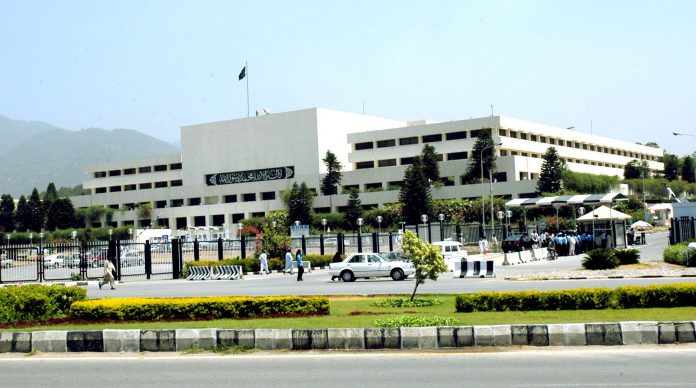ISLAMABAD: The National Assembly Standing Committee on Finance and Revenue has expressed serious concern over the increased taxation on profits from small savings and on cash withdrawals, directing the Federal Board of Revenue (FBR) to revisit its proposals and provide relief to ordinary citizens.
Chairing the meeting at Parliament House on Thursday, Syed Naveed Qamar urged the FBR to minimize the tax burden on small depositors and recommended raising the tax-free withdrawal limit to Rs. 75,000. The committee also strongly opposed the gradual rollback of tax exemptions for the Federally and Provincially Administered Tribal Areas (FATA/PATA), calling it detrimental to the already fragile local economy.
“This is nothing short of economic assassination for small-scale businesses in these regions,” Qamar remarked, instructing the FBR to reconsider its approach and explore alternate ways to support the livelihoods of residents in tribal areas.
During the meeting, the State Minister for Finance and Revenue and the FBR Chairman gave a detailed briefing on the Finance Bill 2025-26 and the FBR’s transformation roadmap, set to begin implementation in December 2025. The FBR Chairman highlighted that Pakistan is currently facing a massive tax gap of Rs. 7.1 trillion for FY2024-25, and continues to lag behind peer economies in tax-to-GDP ratio. He stated that the FBR’s real tax growth—after adjusting for inflation and GDP—remained stagnant at around 1% between 2016–2018 and turned negative at -0.3% from 2018 to 2024.
The FBR presented several ongoing reform initiatives, including digital production tracking, digital invoicing, faceless assessment systems, and cargo tracking. However, committee members raised implementation concerns. They cited issues with the digital production tracking system, which reportedly fails to distinguish between new, used, and scrap materials. They also criticized the faceless assessment system for causing inflated charges, delays, and heavy demurrage costs at Karachi ports.
Chairman Qamar expressed concerns that digital enforcement stations could choke critical port operations and that cargo tracking systems may lead to operational disruptions. He also observed that a culture of housing mortgages has yet to take root in Pakistan and emphasized the need to simplify the process of availing tax credits on housing loans. He directed the FBR to present a clear table of options with specific income thresholds for further review.
The FBR also briefed the committee on various proposals in the budget, including relief for salaried individuals, reintroduction of tax credits on housing loans for small residences, changes to advance tax on services rendered to non-residents, dividend tax on mutual funds, taxation of e-commerce transactions, and an increase in advance tax on cash withdrawals by non-filers. The proposal to allow coal miners in Sindh to sell their product to buyers other than Independent Power Producers (IPPs) was also discussed.
Despite the scope of the reforms and tax measures, the committee remained critical of several key proposals and called for targeted relief to protect low-income groups, small businesses, and underserved regions. The chairman reiterated the need to make taxation more equitable and enforcement less burdensome for compliant taxpayers.
The meeting was attended by MNAs Omar Ayub Khan, Rana Iradat Sharif Khan, Syed Sami Ul Hassan Gilani, Ali Zahid, Zeb Jaffar, Muhammad Usman Awaisi, Dr. Mirza Ikhtiar Baig, Dr. Nafisa Shah, Sharmila Faruque, Ali Jan Mazari, Muhammad Jawed Hanif Khan, Arshad Abdullah Vohra, Muhammad Ali Sarfraz (via Zoom), Muhammad Mobeen Arif, Usama Ahmed Mela, and Shahida Begum. Also present were senior officers from the Finance Ministry, Revenue Division, and other relevant departments.




